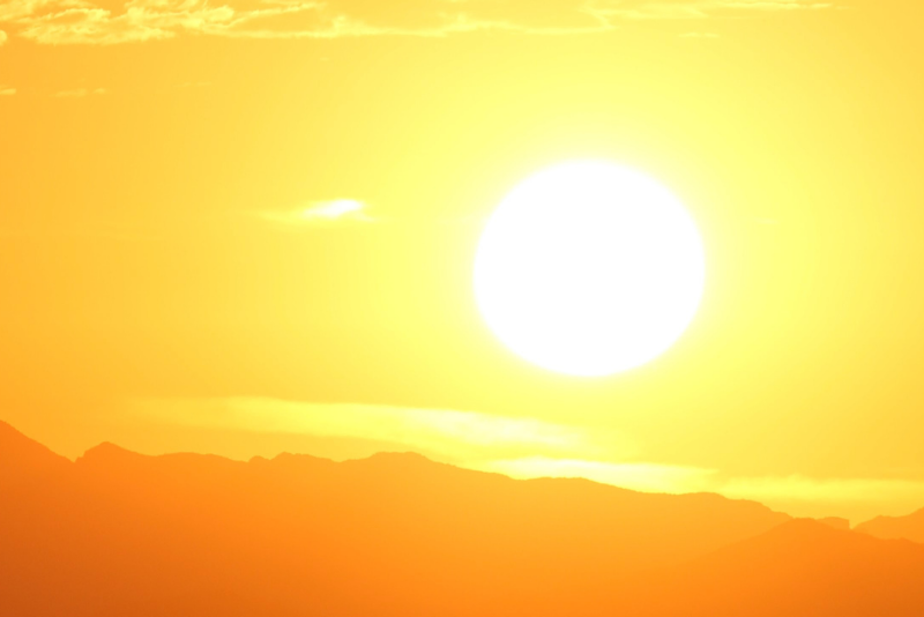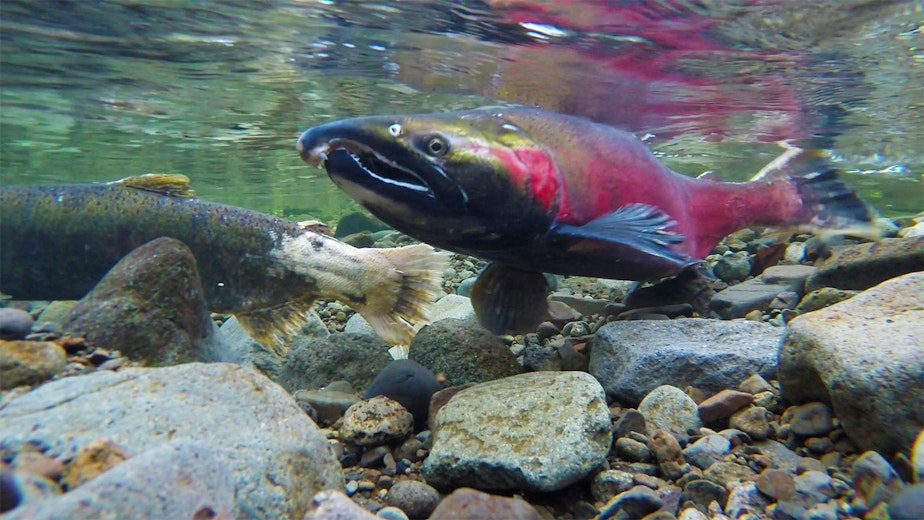This heat wave will be 'historic,' Washington climatologist says

Monday, June 21 may have been the hottest day of the year (so far), but just you wait until the weekend.
The mercury will creep up toward the 90s, even triple digits in some parts of Washington state. Meanwhile, most of the western U.S. is in considerably worse shape. And that can have serious environmental and agricultural consequences.
"Weather happens," says Washington State Climatologist Nick Bond. "But it is going to be, probably, a historic heat wave in terms of its intensity and duration."
It's that last bit — duration — that has him especially concerned this year.
How long such heat waves last could mean a more active wildfire season (which has already begun) and "brutally" high temperatures in Eastern Washington.
"What sometimes happens at the tail-end of these heat events is a push of west winds through eastern Washington that can really be a problem for wildfires," Bond says.
And that can also be a real problem for eastern Washington farms. "Brutal" is also a word some Washington wineries have used to describe the 2020 vintage that was heavily tainted by wildfire smoke.
This unusually hot and dry start to summer is hitting farms especially hard this year. Among the struggling crops this time: barley, the key ingredient in beer.
"Talk about hardship," Bond quips.
How this heat wave is affecting key ingredients in beer
It's no laughing matter to barley farmers, though; 50% of the state's barley crop is in poor or very poor condition, according to Bond. He is not anticipating a beer shortage this summer, however.
"Yeah, you know, you can get barley from other places," he points out. "One thing that Washington state is known for: It grows most of the hops in the United States."
Hops are what give beer varieties like Indian Pale Ales, or IPAs, their classic flavor.
The state's hops have not yet been compromised by the recent heat and low moisture, he says. But it's something to keep an eye on as the heat wave continues.
And because summer rains in the region are never especially abundant, he says we're likely stuck waiting for relief until fall.
Sponsored
There is some good news on the climate front.
A marine heat wave in 2014 and 2015 that became known as the "Blob" devastated West Coast waterways. Small organisms, like plankton, died off in massive numbers, which had a trickle-up effect on the food chain; millions of animals died of starvation.

The Seattle Times reports plankton are finally making a comeback thanks to cooler waters.
Cool coastal conditions along the Pacific Northwest are favorable right now for many species, Bond says, and it looks like that weather pattern will hold this summer.
Sponsored
But he's concerned for salmon returning to smaller streams.
While young salmon going to sea will have good feeding conditions, adult salmon heading into warm streams may not be so lucky.




